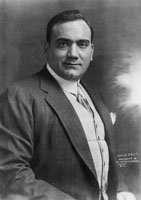 History of the tenor was originally created between 1988 and 1990 on cassette tape as a personal project to archive the great Operatic Tenors of the 20th century.
History of the tenor was originally created between 1988 and 1990 on cassette tape as a personal project to archive the great Operatic Tenors of the 20th century.
The information contained within is the conversion to digital of more than 42 hours of narration and sound bites from analog tape as recorded by my father Sydney Barker.Covering an 80 year period from the very first gramophone recordings these tapes provide not only a comprehensive journey covering the great tenors, their careers and the impact they made in opera music but also a history of the gramophone and how it pertains to the music itself.
Journey through the History of the Operatic Tenor as narrated by Sydney Barker either by selective acts or start from the beginning and enjoy the history as it progresses through a 80 year history captured by one man and his love of this great subject.
Some Sample Tracks From The History

